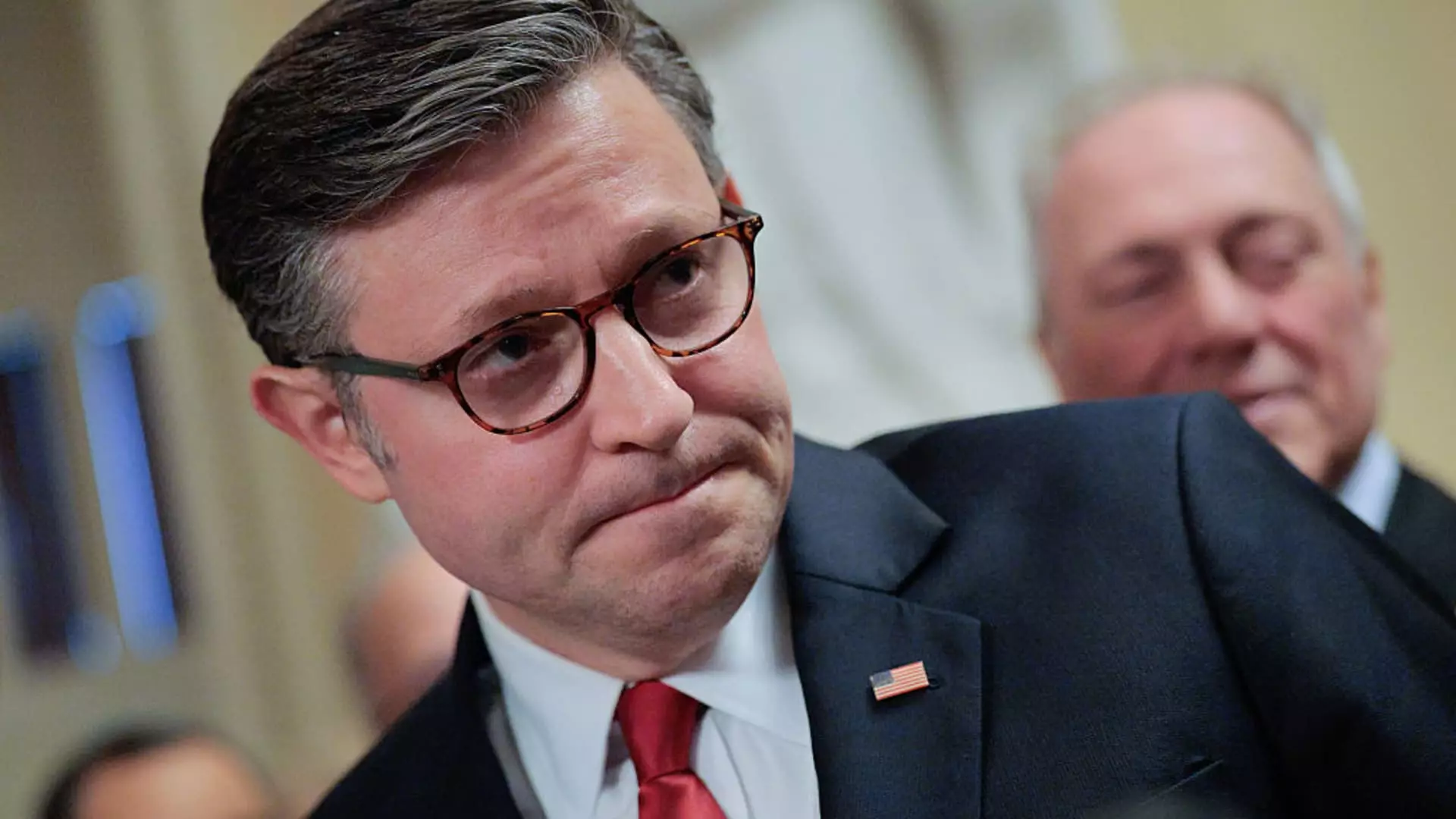The recent passage of the Republican-controlled House’s attempt to advance a sweeping tax and spending bill reveals more about the fragility of political unity than about effective governance. Despite the claims of progress, this victory comes at a steep cost—deep internal divisions and a campaign driven more by strategic maneuvering than genuine policy consensus. The narrow vote of 219-213 underscores the extent to which party loyalties have eroded the possibility of meaningful bipartisan cooperation. The fact that the bill barely squeaked through, amid heated back-room negotiations and shifting alliances, exposes the superficial veneer of political stability that policymakers often parade in public. Far from being a triumph of collective problem-solving, this episode highlights how entrenched partisan interests and power struggles continue to dominate decision-making, often at the expense of long-term national priorities like economic justice, social welfare, and fiscal responsibility.
The Illusion of Market Confidence and Economic Stability
Immediately following the vote, U.S. futures showed minimal fluctuation—an almost optimistic shrug from financial markets—yet this superficial calm obscures the profound underlying risks. The decision to extend the 2017 tax cuts, increase border security spending, and slash vital social programs reveals a pattern of fiscal irresponsibility cloaked in ideological rhetoric. The markets’ slight uptick does not reflect the long-term consequences of further widening inequality or the increasing burden on ordinary Americans. While pundits claim that the bill will promote economic growth, this perspective fails to challenge the core issue: who truly benefits from policy decisions that favor the ultra-rich and weaken social safety nets? The notion that cutting programs like Medicaid and nutrition assistance will somehow lead to prosperity is flawed, neglecting the reality that such policies deepen societal divides and threaten economic stability by reducing the purchasing power and health security of millions.
The Politics of Fearmongering and Self-Interest
The internal conflicts within and across party lines expose a troubling trend: the use of fear and misrepresentation as tools to manipulate public opinion. Democrats decry welfare cuts, painting the bill as a boon solely for billionaires and the wealthy elite, while Republicans dismiss these concerns as ‘fearmongering’—a classic tactic that cheapens genuine policy debate. The active vilification of social programs as drainers on the economy shifts focus away from the structural inequalities that perpetuate poverty and inequality. Politicians, especially in an era of heightened partisanship, seem more committed to preserving their power than addressing systemic issues. Their relentless pursuit of incremental victories often leaves the most vulnerable behind, reinforcing the false narrative that economic growth and social programs are inherently at odds. The spectacle of high-stakes negotiations, often behind closed doors, further alienates citizens from the policymaking process, fostering skepticism about whether these bills serve the interests of the many or the few.
The Dangers of Fiscal Recklessness and Short-Term Wins
This recent debate illustrates a concerning trend in American politics: a reckless pursuit of fiscal shortcuts that aim for short-term political gains rather than sustainable solutions. The proposed $5 trillion debt limit hike, larger than what the House initially envisioned, signals a willingness to postpone confronting real fiscal challenges. Meanwhile, cuts to health insurance and nutrition programs threaten to widen inequality and undermine public health. Such policies risk creating a cycle of dependence and economic insecurity that future generations will inherit, yet leaders seem undeterred by the long-term consequences. The insistence on pushing through these measures under the guise of economic patriotism neglects the social fabric that holds society together. Instead of fostering resilience and fairness, the approach appears to deepen existing divides, emphasizing austerity for the many while rewarding the privileged few.
The Power of Ideology Over Common Good
At the heart of this legislative circus lies an unwavering allegiance to ideology, often at the expense of the common good. Politicians and party leaders appear driven less by pragmatic solutions and more by a steadfast belief in their ideological narratives—whether that’s low taxes for the wealthy, stringent border security, or dismantling social safety nets. This dogmatic stance undermines the possibility of crafting policies that are inclusive, equitable, and sustainable. It’s a conversation rooted in fear, greed, and a desire for control rather than a genuine commitment to improving lives. As long as political actors continue to prioritize their ideological battles over constructive dialogue, the nation remains susceptible to policies that benefit a select few while neglecting the needs of the many. This failure of leadership underscores the urgent need for a more balanced, empathetic approach—one that recognizes the interconnectedness of economic stability, social justice, and long-term prosperity.

Leave a Reply